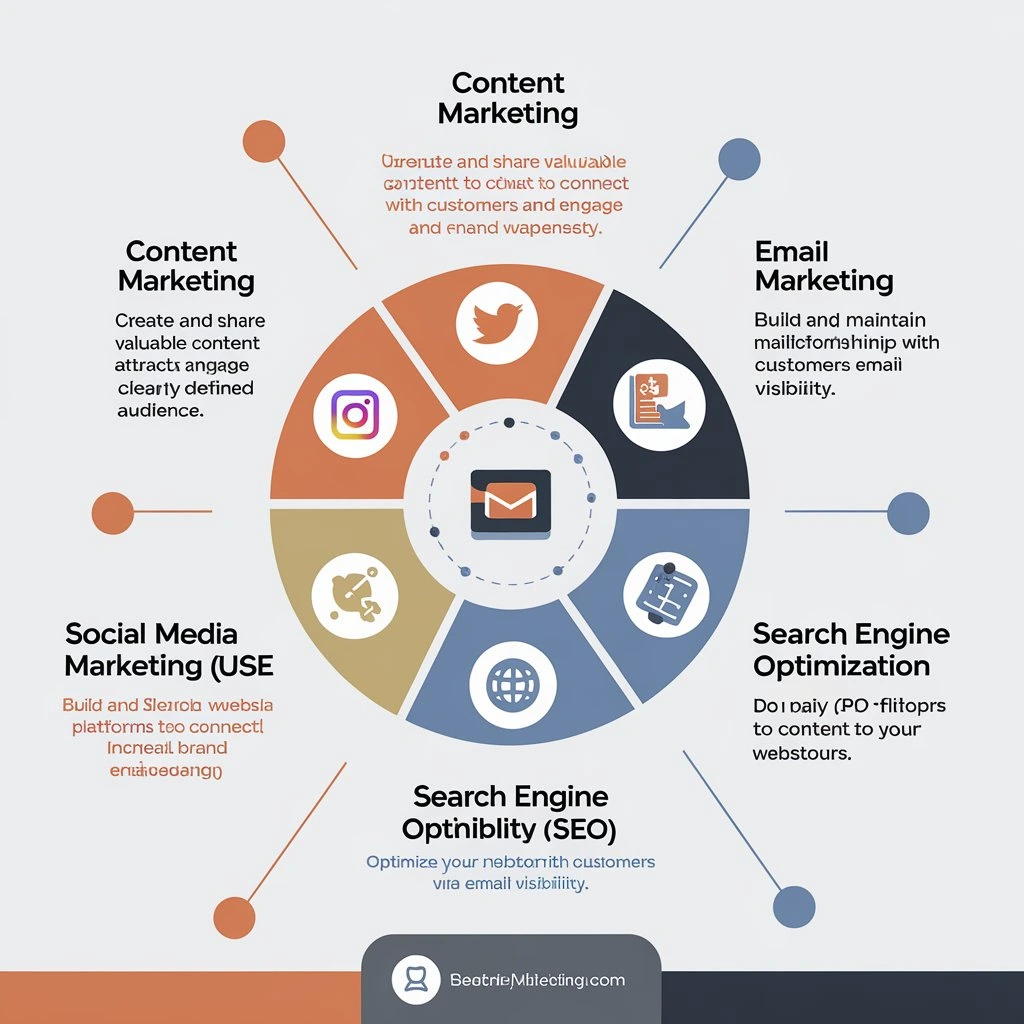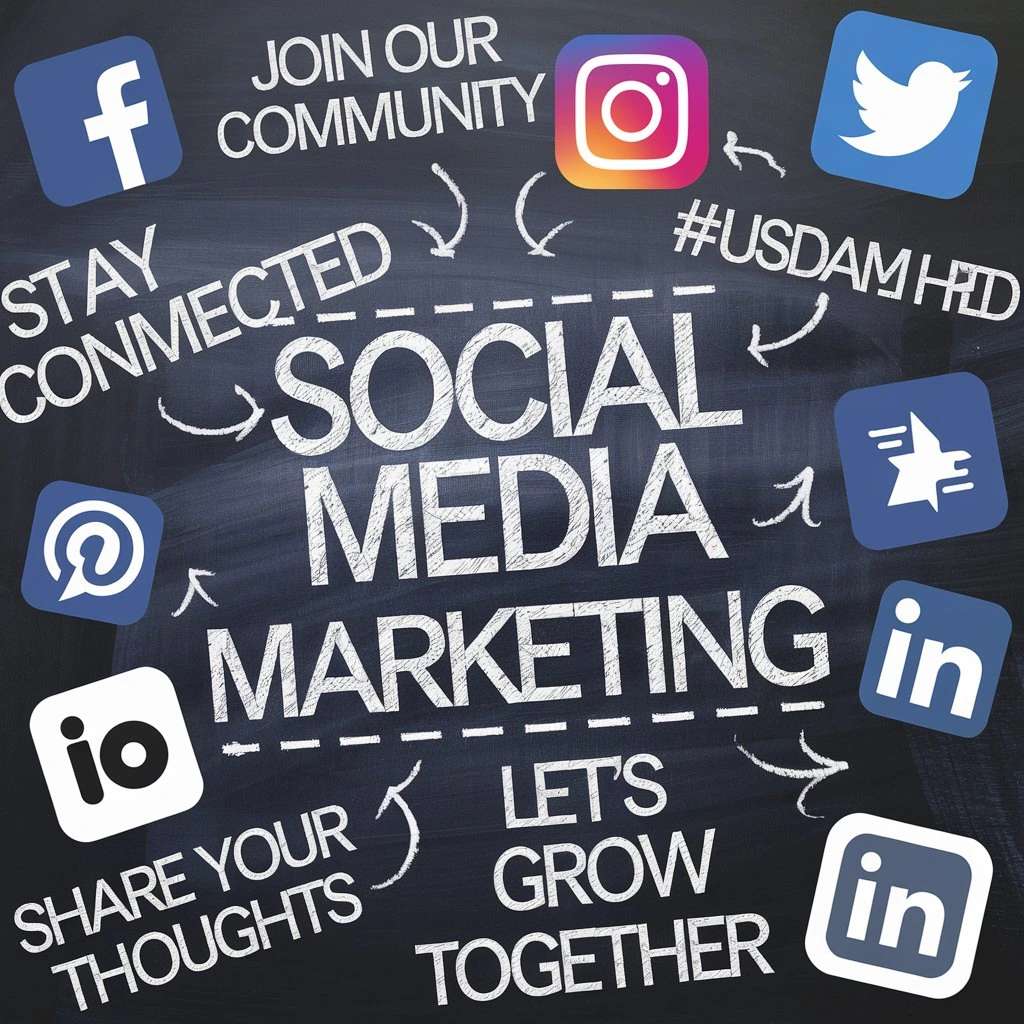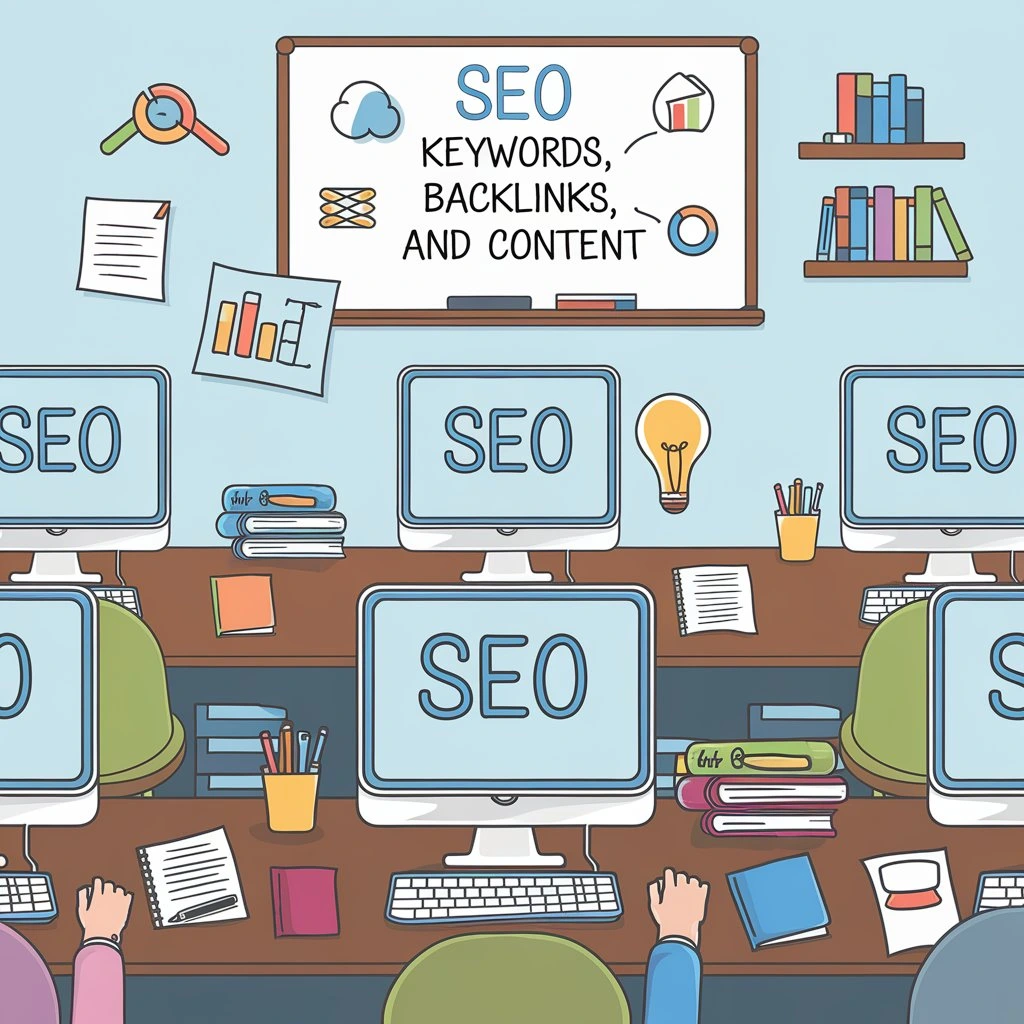
Digital marketing is a game-changer for small businesses, offering cost-effective ways to reach more customers online. With so many tools like social media, SEO, and email campaigns, it can be overwhelming to know where to start. This blog simplifies it for you, sharing five practical strategies that will help grow your brand efficiently while making every dollar count. Let’s dive in!
The Importance of Digital Marketing
In today’s digital age, marketing has become the backbone of small businesses aiming to grow and thrive. Digital marketing offers cost-effective, high-impact strategies that allow businesses to reach their target audience, build brand loyalty, and drive sales. However, navigating the digital landscape can feel overwhelming, especially when resources are tight. This blog will guide you through five of the best digital marketing strategies tailored specifically for small businesses, helping you achieve big results without breaking the bank.

1. Content Marketing
Content marketing is the art of creating valuable and relevant content to attract, engage, and retain your target audience. It’s a long-term strategy that builds trust and positions your brand as an authority in your niche.

- Benefits of Content Marketing:
- Boosts organic traffic.
- Educates your audience about your products or services.
- Helps establish thought leadership.
- Popular Types of Content:
- Blogs: Share tips, guides, and insights related to your industry.
- Videos: Create tutorials or behind-the-scenes clips to engage viewers.
- Infographics: Simplify complex data with visually appealing graphics.
- Tips for Success:
- Understand your audience’s needs and pain points.
- Publish content consistently.
- Use clear calls-to-action (CTAs) to guide readers.
2. Social Media Marketing
Social media platforms provide small businesses with an opportunity to connect directly with their audience and build a loyal community. With billions of active users, platforms like Facebook, Instagram, and LinkedIn offer endless opportunities for growth.

- Advantages:
- Increases brand visibility.
- Encourages real-time interaction with customers.
- Allows cost-effective advertising.
- Effective Strategies:
- Choose platforms where your target audience spends time.
- Post regularly and engage with comments or messages.
- Use eye-catching visuals and relatable captions to connect with followers.
3. Email Marketing
Email marketing is one of the most powerful tools for nurturing leads and maintaining strong relationships with customers. With a high return on investment (ROI), it’s a must-have for small businesses.

- Why Email Marketing Matters:
- Allows for personalized communication.
- Keeps your audience informed about promotions, events, and updates.
- Drives traffic to your website or landing pages.
- How to Build an Email List:
- Offer free resources like eBooks or discounts in exchange for email sign-ups.
- Use website pop-ups to encourage visitors to subscribe.
- Promote your newsletter on social media.
- Tips for Success:
- Write engaging subject lines to improve open rates.
- Segment your list to send relevant messages to specific groups.
- Include clear CTAs in every email.
4. SEO (Search Engine Optimization)
SEO is essential for improving your website’s visibility on search engines like Google. By optimizing your site, you can attract organic traffic and potential customers actively searching for products or services you offer.

- Key Elements of SEO:
- Keyword research: Identify terms your audience searches for.
- On-page optimization: Use meta tags, headers, and internal linking.
- Mobile-friendliness: Ensure your site is optimized for mobile users.
- Why SEO is Crucial for Small Businesses:
- Enhances credibility by appearing on the first page of search results.
- Provides a cost-effective way to attract long-term traffic.
- Helps compete with larger businesses.
- Actionable Tips:
- Use free tools like Google Keyword Planner to find keywords.
- Optimize images by compressing them and adding alt text.
- Regularly update your site with fresh, relevant content.
5. Paid Online Advertising
For businesses that need quick results, paid online advertising is an excellent option. Platforms like Google Ads and Facebook Ads allow you to target your audience based on demographics, location, and interests.

- Types of Online Ads:
- Pay-Per-Click (PPC): Advertisers pay each time a user clicks on their ad.
- Display Ads: Banner ads that appear on relevant websites.
- Benefits of Online Advertising:
- Immediate visibility for your products or services.
- Ability to track performance and adjust campaigns in real time.
- High targeting precision for specific audiences.
- Tips for Effective Campaigns:
- Set a clear goal for each campaign (e.g., sales, sign-ups, traffic).
- Start with a small budget and scale based on results.
- Use compelling visuals and persuasive ad copy.
Conclusion
Digital marketing is an indispensable tool for small businesses looking to grow their brand, engage customers, and drive sales. By integrating strategies like content marketing, social media, email campaigns, SEO, and paid advertising, you can create a well-rounded approach that delivers results. Remember, consistency and adaptability are key to success in the ever-changing digital landscape.
Start small, track your progress, and watch your business thrive online!